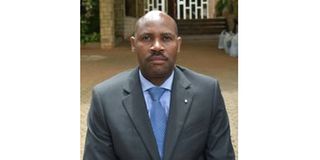Four ways to plan retirement

Dr Charles Barugahare. PHOTO | COURTESY
What you need to know:
- Retirement can be due to restructuring, closure of business, expiry of contract, physical or mental incapacity, ceasing a political office or any other causes.
Retirement is “the action or fact of leaving one’s job and ceasing to work” – Dictionary.
Warranted, this definition is so basic but it brings out the message that the moment you leave a job and cease to work, at whatever time and age, you are retired.
Therefore, retirement can be due to restructuring, closure of business, expiry of contract, physical or mental incapacity, ceasing a political office or any other causes. These situations reveal that you can easily retire at any time and age. The framing of this article is intended to trigger why – think about retirement, what to think about retirement, when to think about retirement and how to think about retirement in planning for retirement from four different perspectives:
Process perspective. Retirement is viewed as building blocks. The early stages in someone’s life are seen as the foundation stage; at this stage, you acquire; basic education, orientation and mentorship from parents or guardians or community, form patterns and behaviours about life. Then, followed by the employment or working stage; this basically brings out new skills, behaviours, beliefs, financial literacy, discipline, socialisation, networking and leadership.This influences a number of things in the way you view life.
Finally, post working stage; here you reap from what you sowed in the earlier stages. It is assumed that if you were well nurtured, mentored and equipped along the retirement process, you will have a better retirement life and that the reverse is also true.
Following through the words of Vincent Van Gough that –“Great things are done by a series of small things brought together.” A better retirement life can be achieved by following through simple principles, guidelines and steps that are consistently done over time. The retirement process has limitations, however, it gives us some insights into why, what, when and how to plan for retirement.
Goal perspective. This view emerges from the perspective that if you dream it, set a goal for it and consistently work on it. Amit Kalantri avers that, “A man with clarity reaches his goal sooner than the man with confidence.”This alludes to the point that the clearer your retirement goal, the higher the chances that it will be achieved.
Clarity drives commitment, consistency and will power to remain focused on your goal. Those who visualise a successful and enjoyable retirement life; think, speak and work differently from those who have never thought about it at all.From the goal perspective, the earlier you set a clear and long-term retirement goal, the easier it is to achieve your objective.
Mindset perspective. This is about how you feel about your retirement life: financial, health, freedom, security and relationships determine the retirement life you will have.
Buddha brings it out that –“All we are is the result of all we have thought.” The mindset influences your retirement actions and decisions before and during retirement. Some aspects you may think about include; what retirement means to you, how you feel about retirement, how you feel about spending your time, how you feel about what you will do as examples.
Relatedly, Joyce Meyer avers that –“You cannot have a positive life and a negative mind.” This means that if you feel confident, certain and excited about retirement, then you will have a positive retirement outlook.
On the other hand, if you feel nervous, uncertain and in doubt, that’s what you will carry along in your retirement life journey.
Lifestyle perspective. Retirement is viewed as a continuation of the life you have been having. This view is based on the belief that as a person moves into retirement, there are habitual behaviour trends that he or she will carry along.
For instance, if one had good financial discipline, relationship and networking skills, it is believed that he or she will continue with such traits.
Certainly, there are things that may change like some people adopting to alcohol drinking habits or dropping them.This view in general, takes the angle that the life-style you have had for some time will determine the quality of your retirement life style.
Dr Charles Barugahare, Co-Founder Retirement Life Hub




